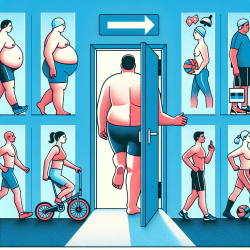In a recent study titled Age of diagnosis, service access, and rights of autistic individuals in Argentina: Caregivers reports of changes and similarities across time, significant findings emerged that can help practitioners improve their skills and encourage further research. The study, published in Frontiers in Psychiatry, compared caregiver reports from 2015 and 2020 to understand changes in the age of diagnosis, service access, and perceived rights of autistic individuals in Argentina.
The study surveyed two independent samples of caregivers: 763 in 2015 and 422 in 2020. The findings revealed several key trends:
- Earlier Age of Diagnosis: In 2020, more caregivers reported noticing developmental concerns and receiving a professional diagnosis before their child turned three. This suggests increased awareness and possibly better screening practices.
- Reduction in Service Barriers: Caregivers in 2020 reported fewer barriers to accessing services, such as shorter waitlists and lower treatment costs. However, the need for improved social support and health services remains.
- Role of Physicians and Teachers: In 2020, more children were diagnosed before age three by physicians or teachers who first noticed developmental concerns, indicating increased awareness among professionals.
- Caregiver Challenges: Despite improvements, a significant proportion of caregivers still reported financial burdens, with family members ceasing work to care for their autistic children.
For practitioners, these findings underscore the importance of early diagnosis and intervention. Here are actionable steps to consider:
- Enhance Screening Practices: Implement standardized screening tools to identify developmental concerns early, ideally before age three.
- Collaborate with Educators: Train teachers to recognize early signs of autism and encourage them to communicate their observations to parents and healthcare providers.
- Reduce Service Barriers: Work with policymakers to address systemic issues like long waitlists and high treatment costs, ensuring that services are accessible to all families.
- Support Caregivers: Develop support networks and resources to assist caregivers, reducing the financial and emotional burdens they face.
The study also highlights the ongoing need for advocacy and policy improvements. Practitioners can play a crucial role in this by participating in awareness campaigns and advocating for the rights of autistic individuals.
To read the original research paper, please follow this link: Age of diagnosis, service access, and rights of autistic individuals in Argentina: Caregivers reports of changes and similarities across time.










